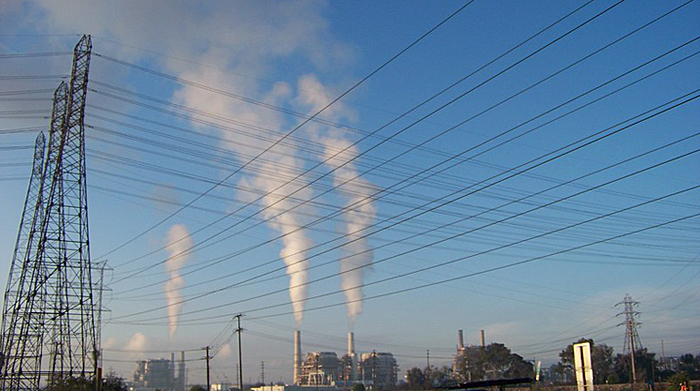Gas-Electric Coordination Proposal Floated by 4 RTOs

Image courtesy of haymarketrebel under Attribution 2.0 Generic License, resized to 700 x 391 pixels.
Four regional transmission organizations (RTOs) that serve over 40% of the U.S. population have put forth recommendations for improving reliability via better gas-electric coordination.
The impetus for these recommendations is the lingering concerns stemming from the chaos caused by Winter Storm Uri in Feb. 2021, during which some electric utilities in Texas cut power to gas facilities as part of their emergency conservation response, creating supply shortages.
Details of the Gas-Electric Coordination Proposal
The 4 RTOs are PJM, ISO New England, Southwest Power Pool, and Midcontinent Independent System Operator (MISO), and they put forth a total of 14 gas-electric coordination recommendations in their paper entitled, “Strategies for Enhanced Gas-Electric Coordination: A Blueprint for National Progress.”
Much of the focus is on improving the alignment of the commodity purchase and delivery of natural gas, which requires collaboration between the RTOs, electric utilities, federal and state environmental regulators, and pipeline and other gas supply stakeholders.
Specific coordination approaches advocated by the RTOs aim to enhance fuel scheduling flexibility, improve weekend and holiday gas trading proclivity, update regulatory policies, create supply redundancy, and optimize infrastructure operations. Click on the link above to peruse the entire list of proposed strategic initiatives.
This effort is just the latest example of the increasing focus on improving intra-sector coordination in the U.S. For example, in Nov. 2023 the National Association of Regulatory Utility Commissioners (NARUC) initiated a 15-month gas-electric working group to discuss methods to improve coordination. And in Dec. 2023, FERC and NERC put forth a coordination proposal involving a “blackstart system restoration plan” designed to restore the power grid in the event of a widespread blackout.
There’s no doubt about it, overall reliability in the energy industry requires coordination and collaboration across the key stakeholders in each sector. If all industry players are not marching to the beat of the same drum, achieving effective and efficient gas-electric coordination will be impossible.



